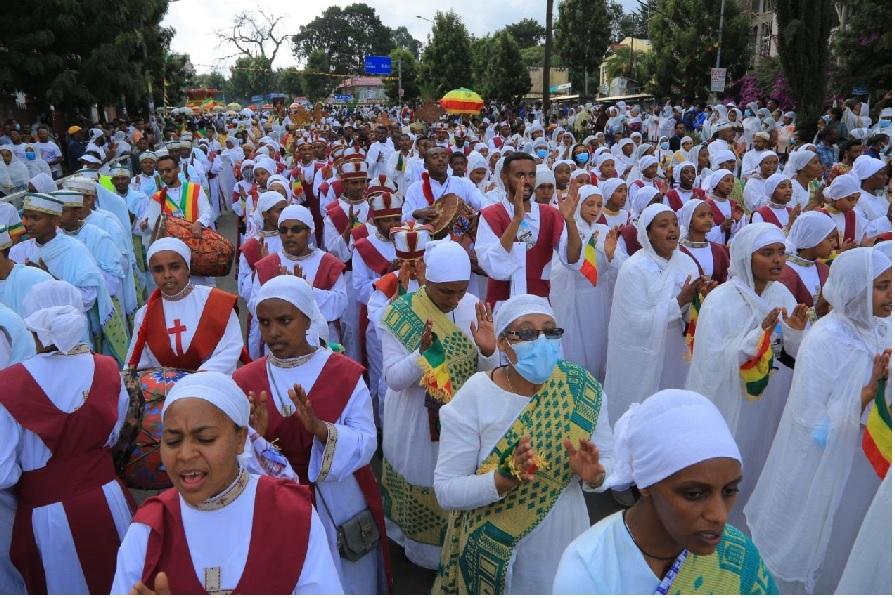Africa-Press – Ethiopia. etnet Shenkute
Unlike many holidays observed indoor, the Ethiopian Epiphany (Timket) is celebrated openly and outdoors which always brings together numerous people from home and abroad.
In contrast to celebrations of holidays like New Year’s Day, X-Mas in Ethiopia that are usually observed in-doors with families, friends and relatives getting together for the festive season, Timket is the most essential holiday of the year for public gathering celebrations.
The nationwide main religious festival, Timket, takes place at the huge open-air venue in every part of the country.
Traditionally, the day for Timket falls on 20th January, except for leap years, and stays for three days. The colorful festivity starts with Ketera, the eve of the Ethiopian Epiphany, which is taking place today, followed by the actual Timket Day and the following day in which the remaining tabots (the replica of the Arc of the Covenant) are returned to their host churches.
According to the dogma of the Ethiopian Orthodox Church, the tabots are sacred replicas of the Ark of the Covenant and march on this day to places where they stay for one or two nights.
The procession to and from outdoor enclosures for the tabots bewilders many Ethiopians irrespective of their religious background. For centuries such religious rituals nurtured unity among citizens and kept it strong.
Along with its religious and spiritual value, Timiket is a cultural event where the public sings cultural songs, performs traditional dances and parades with the most attractive traditionally decorated dressing.
During the days of Timket, many glorious social and religious events take place. Where on one side the clergy, the canonical and ecclesiastical ceremonies are conducted, numerous social and public events take place on the other. The clergy celebrate the feast with the canonical hymnology of Saint Yared and the public sing cultural songs and dance.
Timket is the most important day of public gathering that everyone considers necessary to take part in this event and the festival allows for various cultural and social happenings such as sharing, reconciliation, annual greetings; and serves as a symbol of social bondage.
Beyond strengthening bondage among people of diverse backgrounds, the celebration of Timket develops the artistic and innovative side of the society offering opportunity for knowledge exchange.
Oral traditions also go along with the festive season as people dance and sing popular songs irrespective of languages, ethnic groups and other individual backgrounds.
In rural Ethiopia, the feast of epiphany is celebrated with less field work, farmers finishing collection of harvests. Rivers also run low and dry land appearing with a shiny sky. Meanwhile, in the urban areas, students break from schooling with the academic calendar closing for half a semester, creating the platform for socializing.
The Ethiopian Epiphany is merely the time of feast, love and joy as well as reconciliation as people share what they have during the day, passing the night at the field by singing and praying as the festival discourages hatred, jealousy and other bad attitudes.
Since the festival is a magnet for tourists, many foreigners brace for the slow procession and huge crowd to enjoy the colorful church services along the streets and in the outdoors where the tabots are passing the night. Particularly, this annual festival has come at a time when many diaspora, as part of the Great Homecoming Initiative to Ethiopia, are making this year’s Timket celebration more colorful than ever before.
Jan Meda is the centerpiece for the celebration of the festival in Addis Ababa, while the ancient city of Gondar is the ideal place for foreigners to join the tourist attracting religious ritual.
As Ethiopian Epiphany is the time of gathering, love and joy as well as reconciliation, this year’s celebration is expected to promote unity and reconciliation.
For More News And Analysis About Ethiopia Follow Africa-Press






